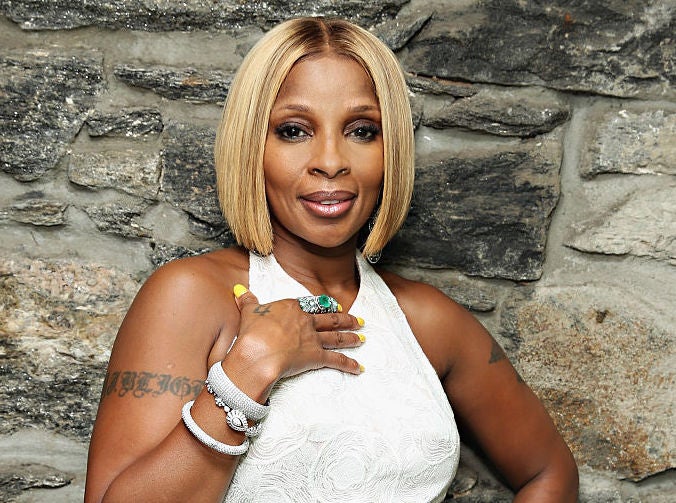In the world of music, few artists have managed to capture the hearts and minds of millions like Mary J. Blige. With a career spanning over three decades, Blige has become an icon in the industry, earning the title “Queen of Hip-Hop Soul” for her unique blend of R&B, soul, and hip-hop. However, it’s not just her musical prowess that has made her a beloved figure; it’s her raw honesty and vulnerability that have resonated with fans across the globe. In this article, we’ll explore how Mary J. Blige’s openness about her struggles has created a powerful connection with her audience, making her one of the most influential and respected artists of our time.

Early Life and Career Mary J. Blige was born on January 11, 1971, in the Bronx, New York. Growing up in a housing project, Blige faced numerous challenges, including poverty, addiction, and abuse. Despite these obstacles, she found solace in music, and her incredible voice soon caught the attention of record producers. In 1992, she released her debut album, “What’s the 411?”, which blended R&B and hip-hop in a way that had never been done before. The album was a massive success, and Blige quickly became a household name.
Sharing Struggles Through Music One of the key reasons why Mary J. Blige has been able to connect with so many people is her willingness to share her struggles through her music. From her earliest albums to her most recent work, Blige has never shied away from singing about the challenges she’s faced in life. Whether it’s heartbreak, addiction, or the difficulties of growing up in poverty, Blige’s music is a reflection of her own experiences.

For example, in her 1994 album “My Life,” Blige sings about her battle with depression and substance abuse. The title track, “My Life,” is a harrowing account of her struggles, with lyrics like “Life can be only what you make it / When you’re feeling down, you should never fake it.” By being so open about her own pain, Blige has created a space for listeners to feel seen and understood, knowing that they’re not alone in their own struggles.
Making It Relatable Another reason why Mary J. Blige’s music resonates with so many people is that it’s relatable. Unlike some artists who present a polished, perfect image, Blige’s music is raw and unfiltered. She sings about the messiness of relationships, the challenges of everyday life, and the process of overcoming adversity. By presenting herself as a real person with real problems, Blige has created a connection with her audience that goes beyond the music.
For instance, in her 2001 hit “Family Affair,” Blige sings about the importance of family and community in the face of hardship. The song’s chorus, “Let’s get it crunk, we gon’ have fun / Up on in this dancery / We got ya open, now ya floatin’ / So you gots to dance for me,” is a celebration of coming together and finding joy despite life’s challenges. It’s a message that resonates with listeners who may be facing their own difficulties, reminding them that they’re not alone and that there’s always a reason to keep pushing forward.
Giving Voice to the Unheard Perhaps one of the most significant ways in which Mary J. Blige has connected with her audience is by giving voice to experiences that had previously been unheard in mainstream music. When she first emerged on the scene in the early 1990s, Blige’s music spoke to the experiences of young Black women in a way that had never been done before. Her songs dealt with issues like domestic violence, 𝓈ℯ𝓍ual abuse, and the challenges of single motherhood, topics that were often taboo in popular music.

By bringing these experiences to the forefront, Blige created a powerful connection with a previously underserved audience. She gave voice to the struggles and triumphs of a generation of women who had been largely ignored by the music industry, and in doing so, she became a hero and an icon.
Strength Through Vulnerability One of the most remarkable things about Mary J. Blige’s music is that, despite the pain and struggle it often depicts, there’s an undercurrent of strength and resilience that runs through it all. Blige’s vulnerability is not a weakness; rather, it’s a source of power and inspiration for her listeners.
In songs like “No More Drama” and “Just Fine,” Blige sings about the process of overcoming adversity and finding inner peace. She acknowledges the pain of the past but also celebrates the strength it takes to move forward. By sharing her own journey of healing and growth, Blige has become a beacon of hope for countless fans who are facing their own challenges.
The Impact of Mary J. Blige Over the course of her career, Mary J. Blige has sold over 50 million albums worldwide, won nine Grammy Awards, and been nominated for two Academy Awards. However, her impact goes far beyond her commercial success. Blige has become a cultural icon, a symbol of strength, resilience, and authenticity in an industry that often prizes artifice over substance.
Through her music, Blige has given voice to the experiences of millions of people who have faced hardship and adversity. She’s shown that vulnerability is not a weakness, but a source of power and connection. And she’s inspired countless fans to keep pushing forward, no matter how difficult the road may be.
Conclusion In conclusion, Mary J. Blige’s vulnerability is a key reason why she’s been able to connect with so many people over the course of her career. By sharing her struggles, making her music relatable, giving voice to the unheard, and showing strength through vulnerability, Blige has created a powerful bond with her audience that goes beyond the music.
As she continues to make music and inspire fans around the world, it’s clear that Mary J. Blige’s impact will be felt for generations to come. She’s not just the Queen of Hip-Hop Soul; she’s a true icon, a voice for the voiceless, and a reminder that even in the darkest of times, there’s always a reason to keep hoping, keep fighting, and keep moving forward.






